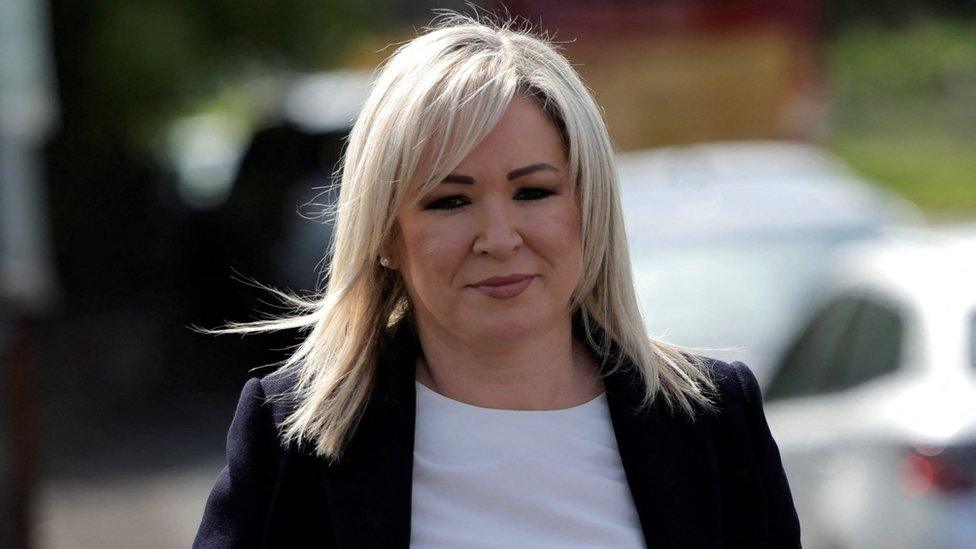Stormont: Little-Pengelly calls for 'constructive' working relations
- Published
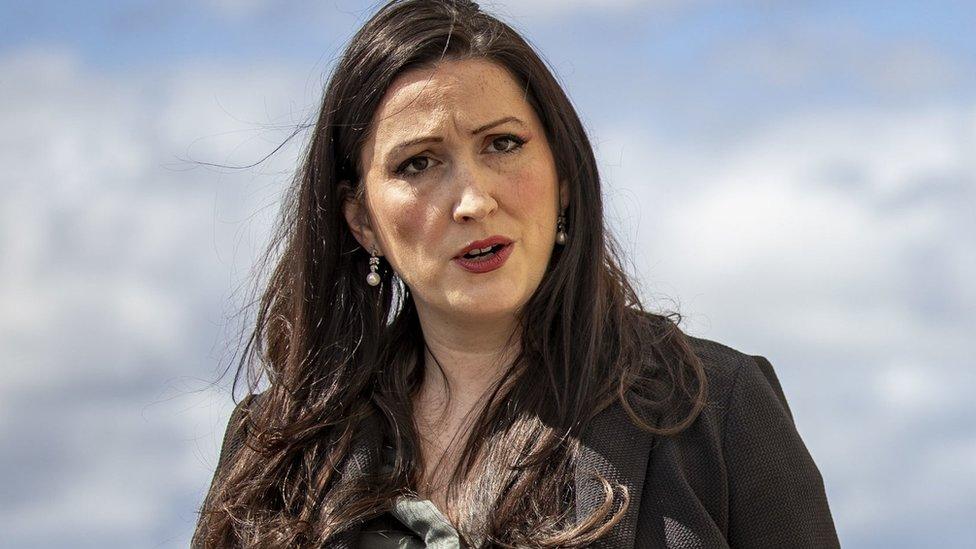
Emma Little-Pengelly is the first unionist to hold the role of Northern Ireland deputy first minister
Deputy First Minister Emma Little-Pengelly has said the "best way" to stabilise NI's government is to build "constructive working relationships".
She was speaking in the assembly after DUP and Sinn Féin MLAs were asked to apologise for the collapse of Stormont in the past 10 years.
Leader of the opposition Matthew O'Toole said the parties had "teamed up... to defend their toxic power to veto the functioning of government".
MLAs earlier voted on Stormont reform.
The opposition SDLP's motion was defeated, with 47 members voting against and 33 in favour.
It was one of three motions tabled by the SDLP on Monday, the first official opposition day of the new assembly term.
DUP and Sinn Féin members were also urged to support a call for negotiations on public sector pay to be resolved by the end of April.
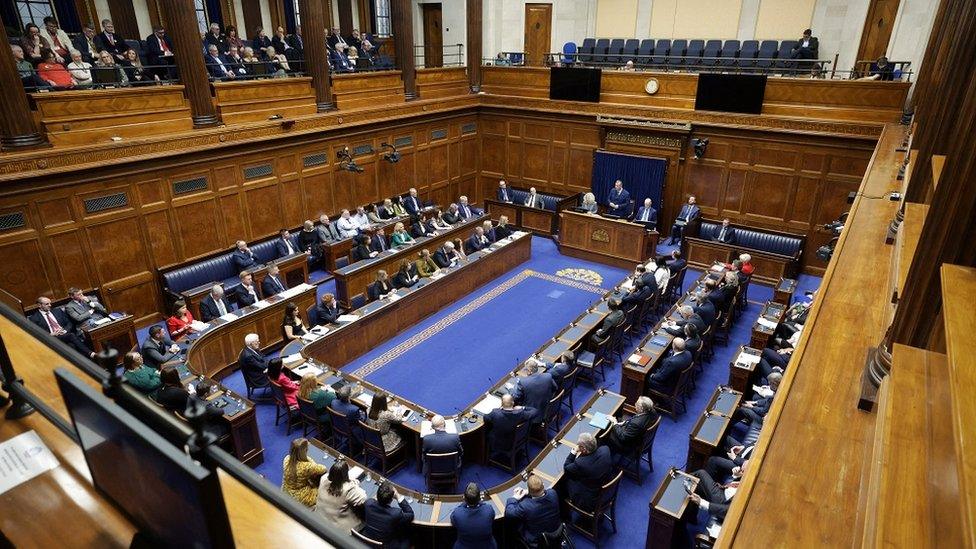
Monday is the first official opposition day of the new assembly term
Ms Little-Pengelly, of the DUP, had been asked by Mr O'Toole during questions in the assembly why she would not commit to remaining in post for the rest of the electoral mandate.
"The best way to secure and stabilise the future of our government here in Northern Ireland is to build those constructive working relationships," she said.
"We work within the framework set down by the Belfast/Good Friday Agreement as amended by St Andrew's.
"That work is appropriately, in terms of reform and the consideration of reform, being taken forward by the AERC (Assembly and Executive Review Committee) and we look forward to reading their recommendations in detail."
'A decade of chaos'
Mr O'Toole said Northern Ireland's challenges had been "undeniably made worse" by the absence of devolution.
"To anybody who thinks we should simply leave the rules on reform after nearly a decade of chaos and devolution, only functioning for a few years out of that, I would simply say this - are you serious?" he told the assembly.
"Can anyone argue with a straight face that we are fine as we are and should just plough on regardless?
"As that saying goes, the first step to recovery is admitting you have a problem."
"At the first opportunity to show that government will be different and to commit to departing from the politics of division and deadlock - the executive has, sadly, failed," Mr O'Toole said.
"Anytime they have collapsed power sharing the result has been the same - hospital waiting lists get longer, patients get sicker, housing lists grow, and public sector workers pay the price."
Mr O'Toole said his party would "strongly disagree" with suggestions that Northern Ireland Secretary Chris Heaton-Harris should do the "heavy lifting" on reforming the devolved institutions.
At her party's annual conference at the weekend, Alliance leader Naomi Long had called on Mr Heaton-Harris to progress reform or carry the blame for any future collapse.
"A Tory secretary of state working out his notice will not do the work for us. We need to do it ourselves," Mr O'Toole told MLAs.
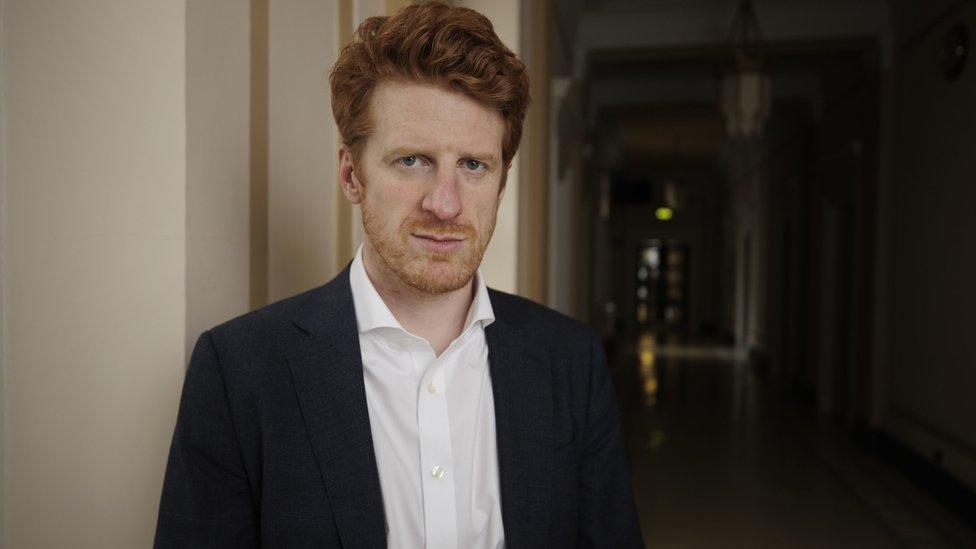
The opposition leader said photo opportunities are good but real work is needed too
'Petty point-scoring'
Earlier Sinn Féin's Deirdre Hargey told the assembly it was "bizarre" that the motion being debated referenced a decline of public services over recent years but made "no mention at all of the British-Tory government and their regressive policies".
"If we're seriously to address the underlying root causes of inequality, and indeed develop world-class public services then we all must work collectively to address the funding shortfall, challenge austerity and transform our public services to meet the needs of our workers, families and communities," she said.
The DUP's Jonathan Buckley described the motion on Stormont reform as "petty point-scoring".
He said the length of time the power-sharing institutions have not been fully functioning was "regrettable" but pointed out that Northern Ireland is "a contested space emerging from decades of terrorism".
Mr Buckley said there was a "need to preserve, rather than destroy, the delicate balance of community relations" within the devolved structures under the 1998 Good Friday Agreement.
Sinn Féin and the DUP failed to back a Westminster report last year calling for the Stormont institutions to be reformed.
However, Sinn Féin has said it is "open to conversations" about changes to the government structures.
Previous DUP manifestos have described "voluntary coalition as the best long term option".
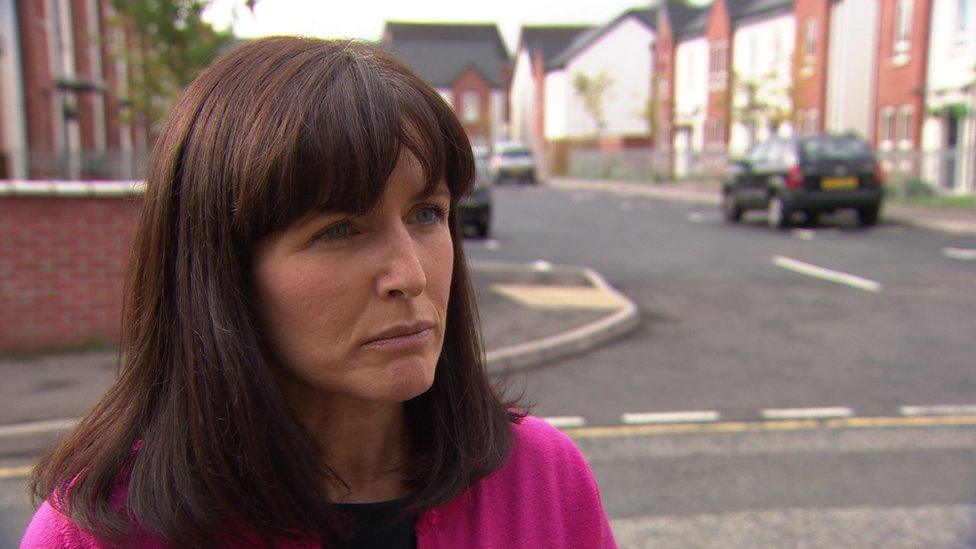
Paula Bradshaw MLA says the Alliance Party has long been calling for "meaningful reform" of the devolved institutions
'Meaningful reform'
Alliance Party assembly member Paula Bradshaw expressed support for the motion and described how the party has long been calling for "meaningful reform" of the devolved institutions.
In an exchange with DUP assembly member Phillip Brett, she said it was "absolutely shameful" his party had vetoed the functioning of power-sharing for two years over Brexit trade rules.
It followed Mr Brett asking how often Alliance had sought a recall of the assembly when Sinn Féin withdrew from power-sharing between 2017 and 2020.
Ms Bradshaw said her party during negotiations on restoring the institutions "did call for it many times and we did take things forward".
On the DUP's recent boycott, she added: "Shame on you, shame on your party, for the impact that has had on the public sector.
"For you to hold the whole country to ransom over your party issue is absolutely shameful and we will feel the effects of this for generations to come."
Ulster Unionist Party leader Doug Beattie has previously called for a "factory reset" of the 1998 Good Friday Agreement institutions but said any changes must be put before the people.
Monday's motions
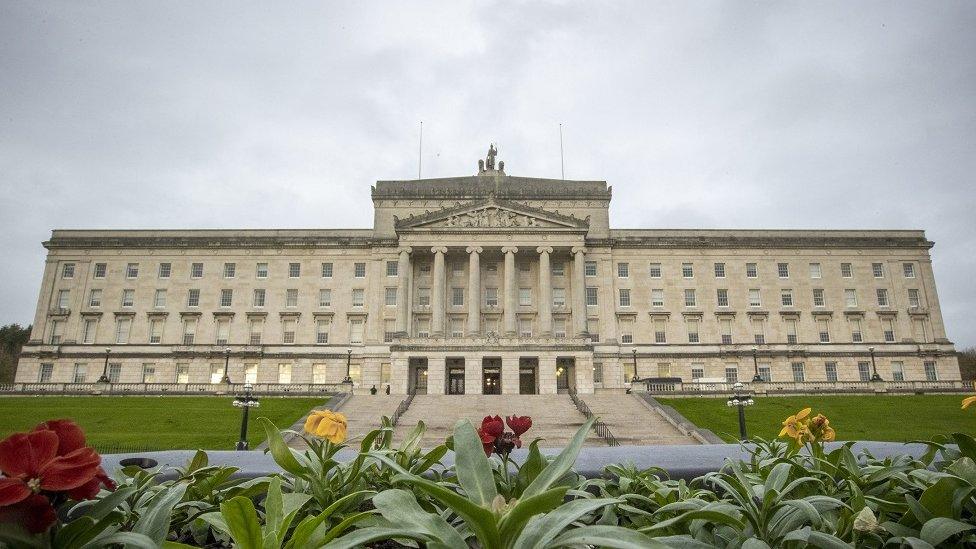
The Stormont executive was suspended from February 2022 until February 2024
The SDLP tabled three motions:
To ask MLAs to express their shame at the suspension of devolution over the past 10 years and to accept responsibility for the "decline in public services" during that time.
Members are asked to apologise to public sector workers who have "experienced pay injustice" and to end the power of one party being able to collapse the institutions.
The first and deputy first ministers are urged to commit to reforming the institutions in the Programme for Government.
- Published15 February 2024
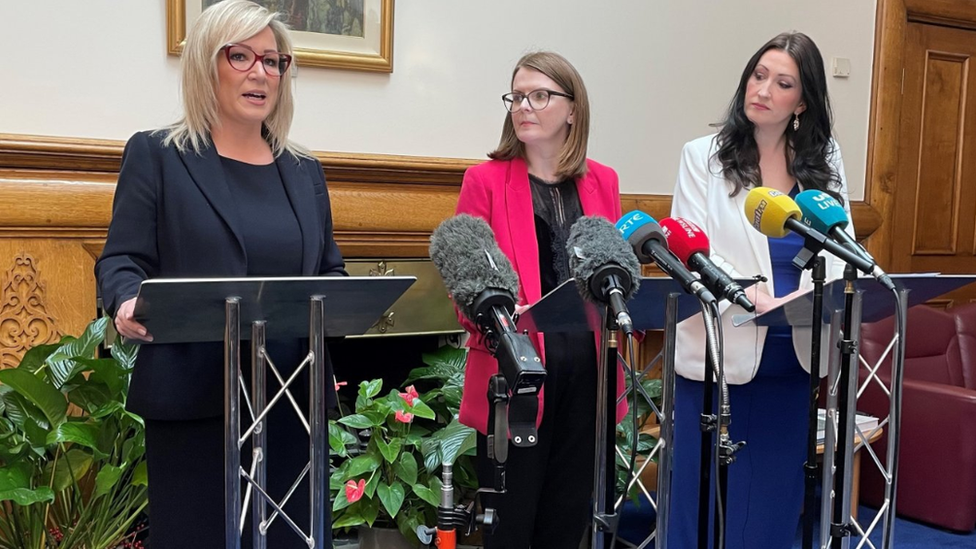
- Published3 February 2024
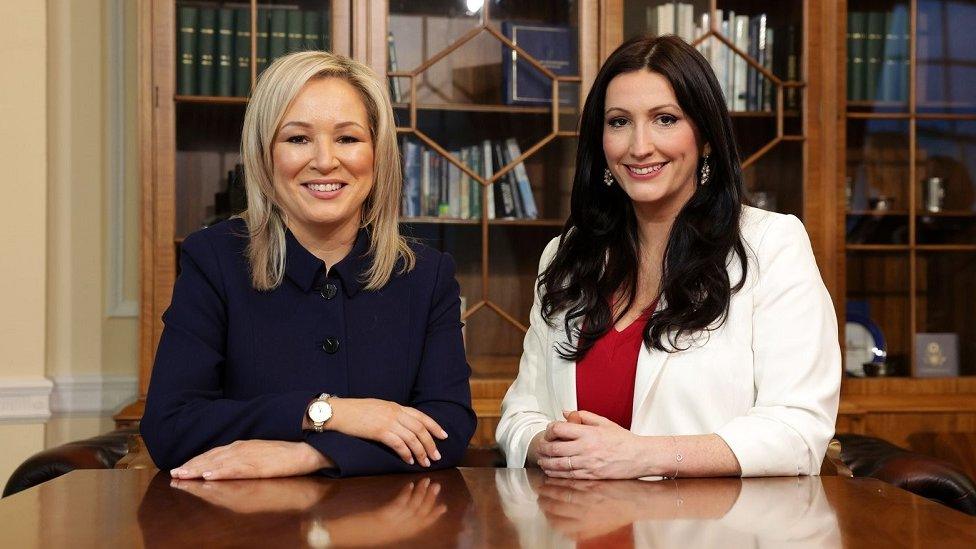
- Published17 January 2024
